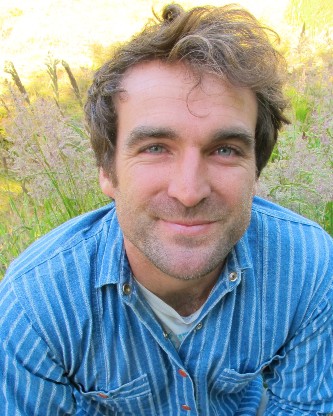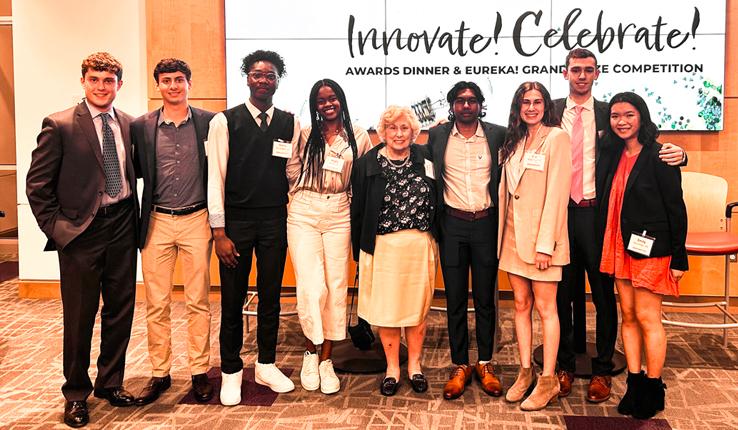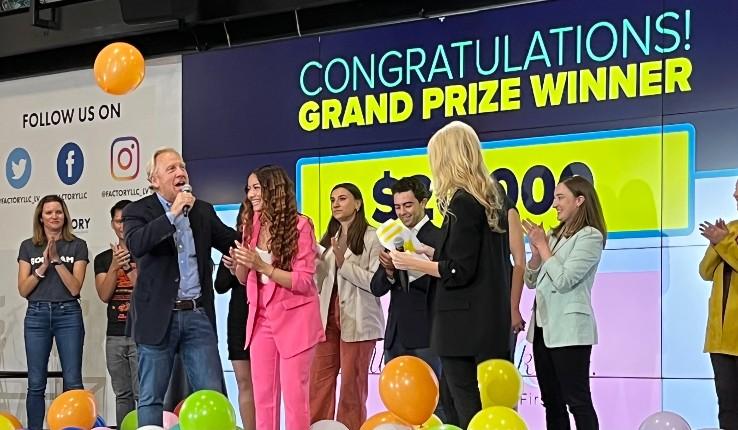Soccer Without Borders founder Ben Gucciardi ’05 ’06 shared his entrepreneurial journey with 37 Lehigh students taking part in an all-virtual Hatchery: Student Idea Accelerator, hosted by the Baker Institute for Entrepreneurship, Innovation and Creativity. The Hatchery’s Inspire/Aspire Speaker Series provided a weekly opportunity for the students to meet accomplished entrepreneurs, many of whom were Lehigh alumni.
Soccer Without Borders founder Ben Gucciardi Inspires Hatchery Students
Gucciardri took part in the Hatchery’s Inspire/Aspire Speaker Series, which was held virtually this summer.

Soccer Without Borders founder Ben Gucciardi ’05 ’06
Gucciardi came up with the idea for Soccer Without Borders, while a student at Lehigh. The non-profit organization provides under-served youth across the globe with the opportunity to play soccer, serve their community and learn valuable life skills. He was able to jumpstart the venture with funds he won from the Thalheimer Student Entrepreneurs Competition at Lehigh, a precursor to the Baker Institute’s current EUREKA! Venture Competition.
Soccer Without Borders has grown into an organization that reaches thousands of players across the world and tackles issues, such as disparate gender conditions and supporting refugee and asylee youth. For his work, he has been honored with multiple awards, including the 2015 White House Champion of Change for World Refugee Day and the Lehigh University Public Service Award in 2019.
In his June 17 talk with students, Gucciardi addressed how Soccer Without Borders, a program built on the premise of in-person play and learning, adapted to the COVID-19 pandemic. His approach, he said, was to start with this question: “What action can we take that will best serve the young people in our program?”
Initial changes included online practices, as well as providing food drop-offs for players and making service referrals for those in need. It soon became clear the organization needed a different approach to keep their students engaged and motivated, he said, and the idea of the “stay-home season” was born.
“We realized pretty quickly that we need to incentivize this, and we need to make it fun,” Gucciardi said. “We need to make it dynamic.”
Teams were formed and awarded points for the number of members who attended the online practices, pitting teams against each other for the most attendees. Teams also participated in weekly challenges that added a social justice lens to the league and gave players an opportunity to learn, connect and give back during this time of social isolation. The challenges were one way to incorporate a crucial piece of Soccer Without Borders mission: “providing under-served youth with a toolkit to overcome obstacles to growth, inclusion, and personal success.”
“I grew up in San Francisco, in an environment that placed a lot of emphasis on social justice and on service,” said Gucciardi. “That was always part of what I knew I wanted to do.”
He shared his perspective on social justice, leadership and his intentional choices, such as remaining in California and ceding leadership roles to others. He also shared a philosophy that guides his work with staff.
“How am I treating the people that I'm working with? How am I supporting them? How am I listening to them if I'm the person who's in a position of leadership? My responsibility is to them, to support them, and to make sure that they're included in big decisions,” he said.
At the staff level, there were surprise positive outcomes of the COVID-19 crisis, he said. All-staff meetings, now held virtually, brought together co-workers from the United States, Nicaragua and Uganda.
“We're able to have closer collaboration amongst staff that are usually sort of siloed by location but are now working together more, which has been really exciting.”
The topic of social entrepreneurship, combined with Soccer Without Borders’s COVID-19 response, left an impression on the Hatchery students.
Says Renée Baran, Baker Institute’s Innovations Program Manager, “Ben's conversation with our students about why he established Soccer Without Borders was nothing less than inspirational. He exemplifies what it means to not only do well, but also to do good in the world. Our Hatchery students were offered a very different view of entrepreneurship from Ben's story of what it meant for him to follow his heart and affect positive change for underserved youth."
Gucciardi’s story demonstrated many of the tenets of the Hatchery program: Ask questions, keep the user in mind, and be true to oneself.
“Let your actions and what you're doing come from [the heart],” Gucciardi said. “As you're thinking about what you might want to be doing just consider that aspect of it and if you get yourself into something that doesn't feel aligned with how you want to be as a person, then you should really question whether that's the right thing to be doing.
Story by Samantha McGinty Dutton




